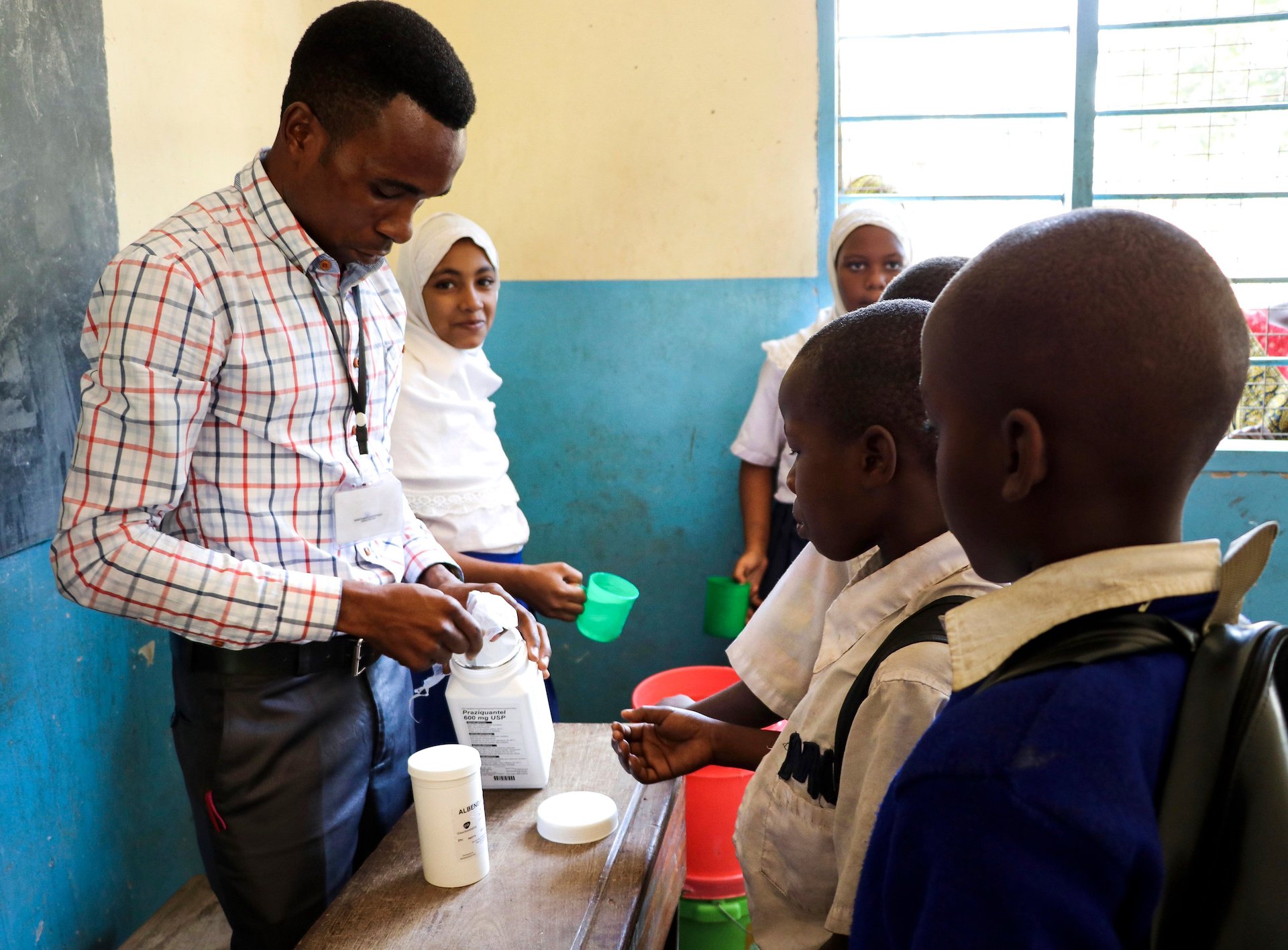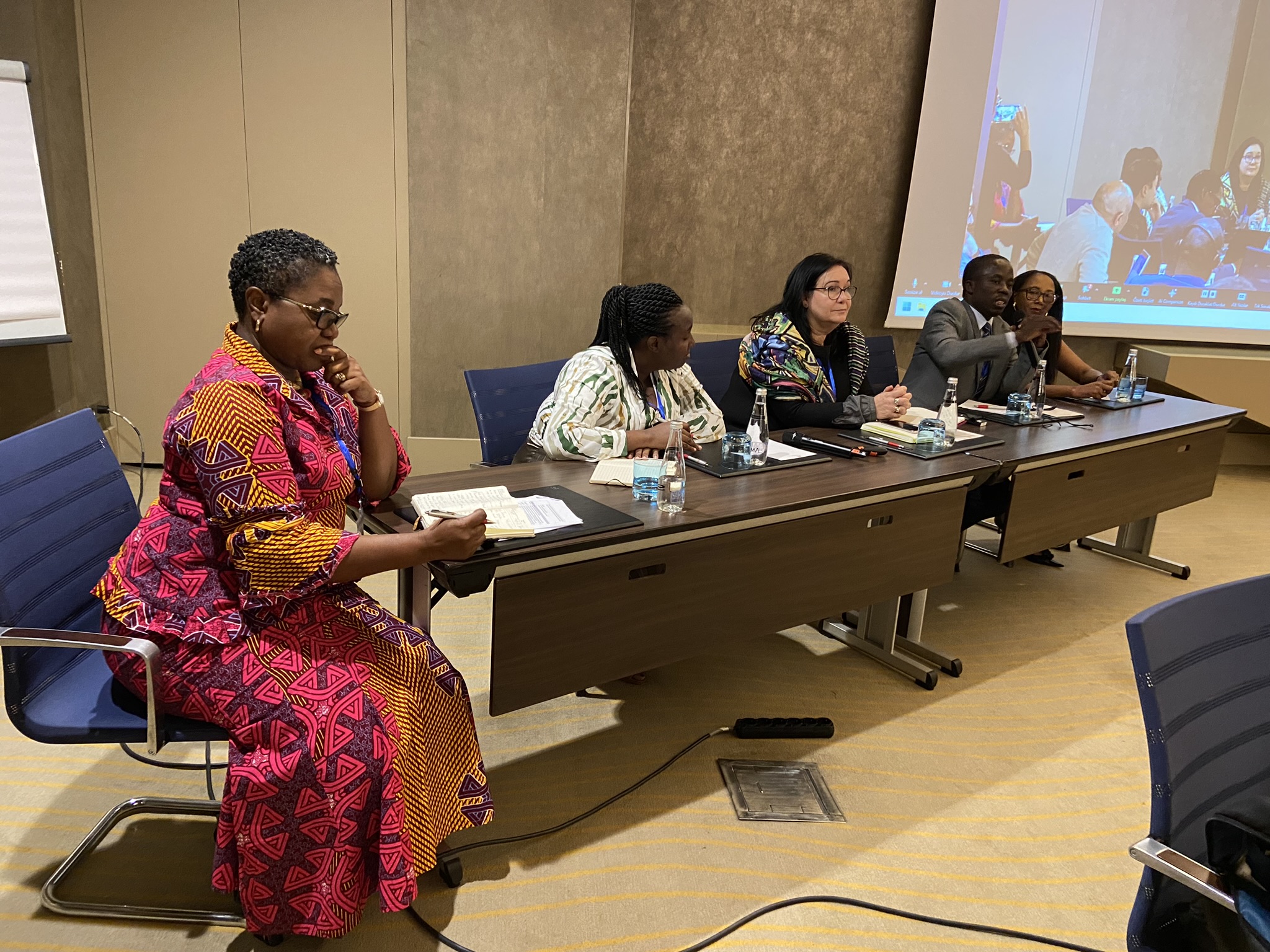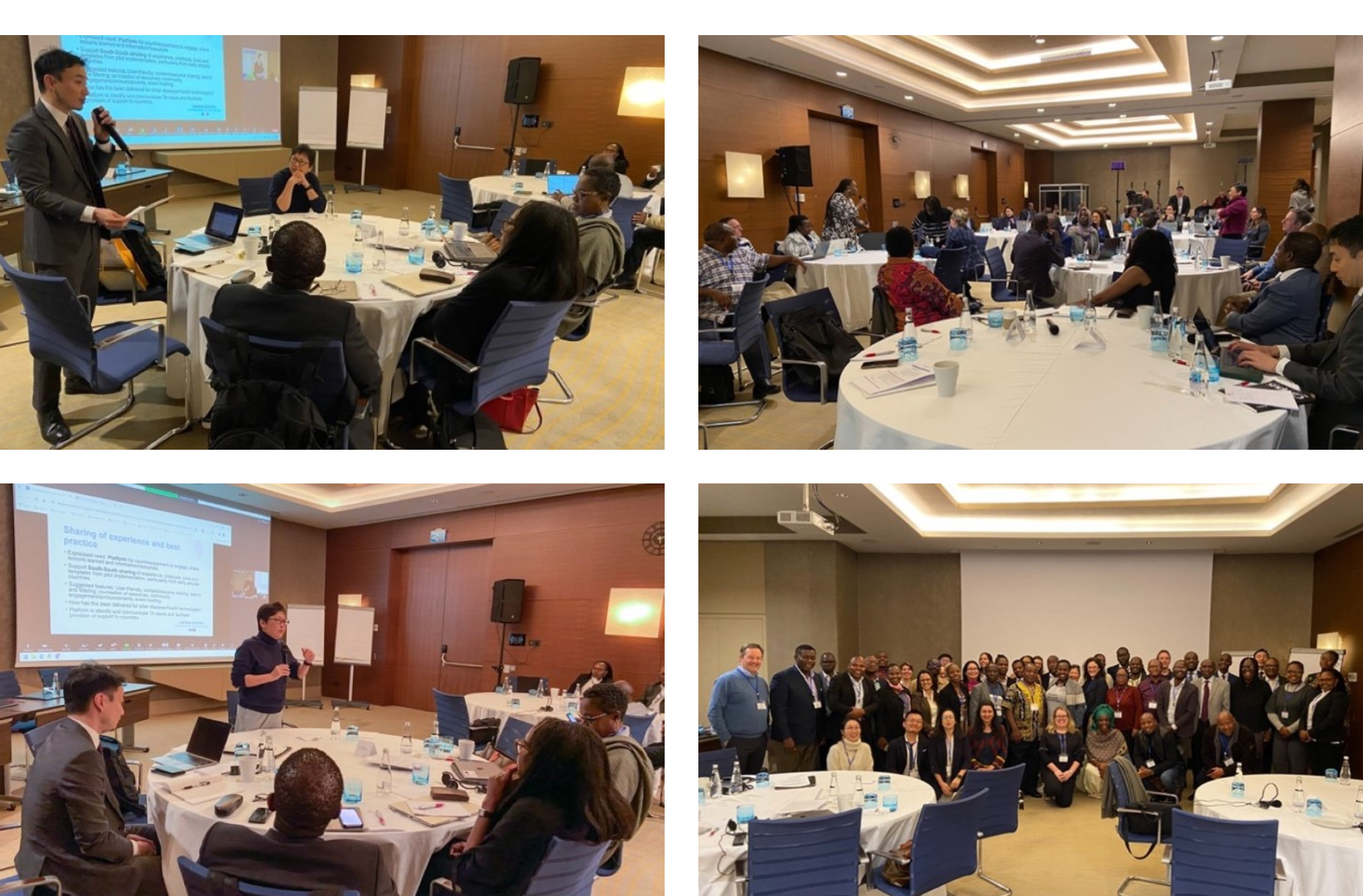Ensuring country readiness for access to a new paediatric treatment option for schistosomiasis
February 27, 2024

School-aged children have long been able to access treatment for schistosomiasis, as well as an increasing number of adults, however preschool-aged children have been left without access to an age-appropriate formulation.
With a new treatment option against schistosomiasis for preschool-aged children on the horizon, key stakeholders recently convened in Istanbul to discuss the challenges that lie ahead and the collaborative efforts needed to ensure country readiness for equitable access.
The consultation was organized by Uniting Efforts for Innovation, Access and Delivery – a joint initiative of the United Nations Development Programme (UNDP)-led Access and Delivery Partnership (ADP), the Global Health Innovative Technology (GHIT) Fund and the Government of Japan.
Schistosomiasis, also known as Bilharzia, is a chronic parasitic disease caused by blood flukes belonging to the genus Schistosoma. It thrives in areas where freshwater snails serve as intermediate hosts. The disease is predominantly endemic in the African continent, where it poses a significant public health challenge. Children are highly susceptible to infection due to their frequent contact with contaminated water.
Beyond the immediate health consequences, such as anaemia, stunted growth and impaired cognitive development, the disease burden of schistosomiasis extends past childhood, with long-term effects into adulthood. It is one of the most devastating neglected tropical diseases (NTDs), both in terms of its health impact and the socioeconomic consequences.
Despite their vulnerability to the disease, preschool-aged children have been largely excluded from accessing treatment due to a lack of age-appropriate formulation of praziquantel, the recommended treatment against schistosomiasis. Until the development of a paediatric form of praziquantel, this gap in treatment options has left an estimated 24 million 2-5 year old preschool-aged children in Africa at-risk of schistosomiasis.
To address this, over the past decade, the Pediatric Praziquantel Consortium – an international public-private partnership financially supported by the European and Developing Countries Clinical Trials Partnership and the GHIT Fund – has focused its attention on the development of an innovative praziquantel paediatric treatment option for preschool-aged children, as well as an innovative access path to support translation of these R&D activities into impact. With the recent adoption of a positive scientific opinion on the new treatment by the European Medicines Agency, it is now in advanced stages, and countries where schistosomiasis is endemic are preparing for its possible introduction.
“With the EMA positive opinion, the Consortium is delighted to see the efforts of the past 10 years become a reality, to be able to treat this vulnerable population and to contribute to the elimination of schistosomiasis as a public health challenge,” said Dr. Béatrice Gréco, Director of Access, Merck Global Health Institute, representing the Consortium. “This major milestone now opens the door to concrete conversations and actions in partnerships with endemic countries and all relevant parties to support wide adoption of this new product.”
“The availability of an efficacious and safe treatment formulation for preschool-aged children represents a critical tool in endemic countries’ arsenal against schistosomiasis, promising to improve the lives of millions of children and, by extension, the communities in which they live,” said Dr. Hayato Urabe, Associate Vice President, Investment Strategy, Portfolio Development & Innovations at GHIT Fund. “Equitable and sustainable access to this treatment will be essential to ensure that no child is left behind.”
“With this new product, we think that we are going to have an accelerated impact on the elimination of the disease towards the NTD roadmap targets, because all age groups at risk will be included in mass drug administration campaigns and also benefit from routine treatment in health facilities,” said Dr. Amadou Garba Djirmay, Scientist, World Health Organization (WHO) Global Neglected Tropical Diseases Programme. “There will be an improvement of the health of young children.”


Participants at the consultation discuss measures needed to ensure country readiness and equitable access for the new paediatric treatment option for schistosomiasis.
The consultation in Istanbul brought together representatives from ministries of health, national disease control programmes and regulatory authorities of affected countries, as well as Pediatric Praziquantel Consortium partners, GHIT Fund, UNDP, WHO, the Special Programme for Research and Training in Tropical Diseases (TDR), PATH, the WHO-hosted Global Accelerator for Paediatric Formulations Network (GAP-f) and the Tackling Infections to Benefit Africa Partnership. It facilitated dialogues on the relevant strategies for equitable access to the new treatment option, and the range of preparatory measures needed at the country level, in alignment with the latest WHO guidelines.
The consultation focused on key areas crucial for supporting access to the new treatment option. Topics included quantifying local schistosomiasis disease burden and ‘hotspots’, and forecasting needs to determine specific drug requirements. Discussions also considered optimal delivery models that have been identified through national dialogue, supported by TDR, as well as streamlined regulatory approval in individual countries with WHO assistance. Additionally, strengthening existing pharmacovigilance systems, engaging communities for better acceptability and ownership, and addressing financing and procurement challenges were emphasized.
The consultation fostered a rich exchange of knowledge, experiences and good practices. This included sharing of lessons from the ADOPT and STEPPS programmes.
ADOPT is an implementation research programme led by the Pediatric Praziquantel Consortium in collaboration with the Ministries of Health in Kenya, Côte d'Ivoire and Uganda. It aims to prepare countries for the large-scale introduction of the new paediatric treatment option, through research on social mobilization and acceptance by communities, existing drug delivery strategies and monitoring and evaluation frameworks.
The Strengthening Capacity for Delivery and Uptake of Paediatric Praziquantel for Schistosomiasis (STEPPS) programme in Tanzania is led by the National Institute for Medical Research, with support from ADP and TDR. It focuses on strengthening institutional frameworks for introduction, access and delivery of the new paediatric treatment option, as well as raising awareness of the burden of paediatric schistosomiasis among decision makers, implementers and communities. A delivery strategy, training manual and guidance on treatment protocol have been developed to guide the deployment of the new treatment option.
“Schistosomiasis has a huge impact on people’s lives,” explained Dr. Paul Erasto Kazyoba, Chief Research Scientist at the National Institute for Medical Research in Tanzania, a country where more than a third of the population are estimated to be at risk. “Among the negative impacts is morbidity – kids are growing up with a lot of vulnerabilities to other diseases because of deteriorating health caused by schistosomiasis infections. Parents find themselves repeatedly taking their kids to the hospital. It’s a relief to know that there will soon be a treatment formulation for preschool-aged children.”
“There are a number of obstacles to overcome, but by taking a cohesive, multi-stakeholder approach and emphasizing the importance of international and in-country collaboration, success is within our reach,” said Cecilia Oh, Programme Advisor, Access and Delivery Partnership, UNDP.
Moving forward, the partners of the Uniting Efforts for Innovation, Access and Delivery initiative, will work with all key stakeholders, including the Pediatric Praziquantel Consortium, the WHO Global Neglected Tropical Diseases Programme, the WHO-hosted GAP-f, the WHO Regulation and Safety Unit, government partners, affected communities and other stakeholders to facilitate country readiness for equitable access to the new paediatric treatment option for schistosomiasis.

 Locations
Locations



